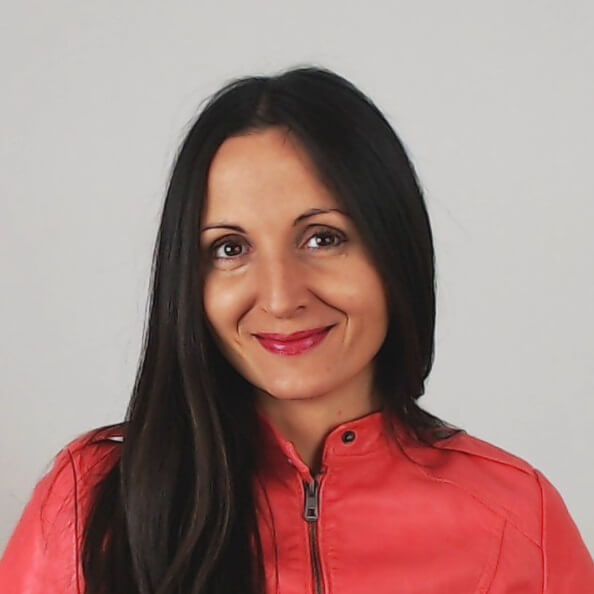Learn to say no thank you in Serbian and stop overeating
If you’re visiting Serbia, this is a must read! Learn how to deal with “slatko” and how to say NO THANK YOU in Serbian politely – you are going to need that!
If you’re getting ready to visit a Serbian home, be prepared that you’ll probably be offered a variety of foods and drinks. Probably beyond your appetite. For that reason, one of the most important things to learn is how to say no thank you in Serbian: how to deny your host’s offers politely, but firmly.
The first thing you’re offered in a traditional Serbian hospitality ritual is “slatko”. Ever heard of it? In English you call it ‘spoon sweet’ or ‘fruit preserve’. It’s actually typical for all the countries in the Balkans.
Then the treats continue: homemade coffee and rakija, wine or beer, full lunch or at least a meze, and more sweets. With all that, your hosts will repeatedly check if you want more, or if you need something else. They’ll keep telling you to help yourself (“Služite se”), not to hold back (“Ne ustručavajte se”), to feel like at your own home (“Osećajte se kao kod svoje kuće”).
Why are your Serbian hosts so annoying sometimes? It’s because the guests are normally a little shy and refuse at first even if they want something. Therefore, your hosts must give you plenty of opportunities to take what you actually want, but are reluctant to say it. Don’t get annoyed with them: they are only trying to make you comfortable.
In the following video you’ll see what ‘slatko’ is and what to do when it’s served to you. You’ll also learn how to refuse food or drink without offending anybody: how to say no thank you in Serbian.
/transcript/
In this video I will explain three things to you:
- What is “slatko” and what exactly you should do with it
- How to politely say NO in Serbian and stop overeating or overdrinking, without offending anybody
- How to learn other little tricks that will help you act and sound genuinely Serbian and impress your Serbian friends!
Šta je slatko?
Slatko means “sweet”. You can use it as an adjective.
(Čokolada je slatka. Sladoled je sladak.)
As a noun, slatko is the name for the traditional Serbian dessert made of different kinds of fruit cooked in a thick sugary syrup. Think of it as a marmelade made of whole fruits or big chunks of fruits. The same kind of sweet is made in Greece as well.
It is a tradition to serve this sweet to the guests in a small crystal bowl, or simply in a jar where it’s normally kept, with a glass of water. Here’s what you’re supposed to do: take the teaspoon (uzmete kašičicu) and take one mouthful (i uzmete jedan zalogaj). Then you should drink some water (onda popijete malo vode) and leave the little spoon in the glass, if there’s no other place reserved for that. Sometimes the spoons are in a special container, like this, where clean teaspoons are held on one side, and used spoons are put on the other side, but it’s always the safest to put the spoon you’ve used in your glass of water.
If you want to take more slatko, then you should take another clean teaspoon.
How to say NO THANK YOU in Serbian
If you have friends or family in Serbia, Bosnia or Croatia, you’ve noticed how insistent they can be in offering food and drink, and making you take some more (još malo), another glass (još jednu čašu), another piece (još jedno parče).
You don’t want to offend anybody, and you don’t want to harm your body. How to reject them with no offence? You want to be firm and polite, and you want to learn a few simple words: Ne mogu. It means “I can’t”. So it’s not your fault, it’s not that you don’t want or that you don’t like what they’re offering, you just can not eat or drink.
Ne mogu.
Stvarno ne mogu. (I really can’t)
Ne mogu više. (I can’t /eat or drink/ any more)
How to learn other tricks that will help you act and sound genuinely Serbian and impress your Serbian friends?
If you liked what I explained here and if you want to learn more about the Serbian language, lifestyle and customs, you’re in the right place: enroll in the Natural Serbian Course! As a welcoming gift, I will send you my grandma’s secret recipe for “slatko od smokava”, in Serbian AND English.
by Magdalena Petrovic Jelic
Founder of Serbonika
Serbian language teacher and entrepreneur, language lover and polyglot, but also a mother and a relentless storyteller.
On a mission to create the best web space for learning Serbian: Serbonika.

Serbonika
Najbolja metoda za učenje srpskog jezika
The best method to learn Serbian
How to Find an Excellent Serbian Language Teacher
How to find a good Serbian language teacher? Not an easy task. When choosing your Serbian teacher, pay attention to the traits that will help you recognize a true talent
Feet Speech: 8 Serbian Leg Idioms for English and Norweigian Speakers
Did you know that many Serbian leg idioms are actually the same in English and Norwegian? That was a surprise for me too!
False Friends in Serbian for Polish Speakers
Some English speakers make jokes about polishing their Polish, but in this article you will learn 16 false friends in Serbian for Polish speakers.
Corona Virus in Serbia Fought by Distance Learning
First cases of Corona virus in Serbia, isolation measures and the 1st experiment with distance learning in public schools – a Brilliant Solution for Quarantine





